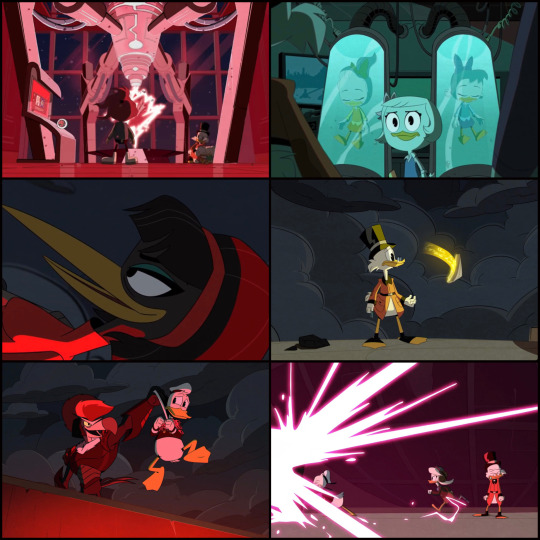#jim marks
Explore tagged Tumblr posts
Text
Dust Volume 11, Number 8

Ethel Cain
After a long, cold, occasionally snowy spring here in northern New England, we’re finally seeing some signs of life — little blue flowers in the lawn, the first dandelions, the shocking yellow of forsythia. Music, too, is pushing up new, crowded shoots as the winter doldrums elapse. We’re swamped in promos. We do our best.
This month’s Dust surveys a diverse landscape dotted with jittery dance and placid ambient music, torrid death punk and obliterating doom metal. Let it all bloom, we say. It’s up to you to pick the ones that appeal to you.
This month’s contributors include Andrew Forell, Tim Clarke, Ian Mathers, Jonathan Shaw, Bill Meyer, Jennifer Kelly, Bryon Hayes and Jim Marks. Happy spring.
Damian Anache — Lento, en un jardin reticular (Inkilino)
Damian Anache’s explores the tension between composition and improvisation. Working from a minimal palette of drone, voice, click and buzz, Anache conjures his music from the very atoms of sound. His real time manipulations involve the play of these elements creating fluctuations and juxtapositions that move between near silence and crescendos that scratch the air and seem to fold in upon themselves. Anache has an uncanny ability to untether his sounds from reality and as he molds his material, patterns take form. The simple contrast of the glacial timbre at the core of “La Llanura de las esferas” with its spectral echo creates flickers as the friction of the drones creates heat. He begins “Obvio y obtuso” with a disembodied choir which dissolves to what sounds like vocal clicks testing a rhythm over a wounded calliope, the choral sounds return, diced, denatured and reduced to uncanny emanations beyond language. An often perplexing but totally enthralling listen.
Andrew Forell
Billow Observatory — The Glass Curtain (Felte)
The duo of Jason Kolb (Auburn Lull) and Jonas Munk (Manual) have been collaborating for nearly 20 years now, but their music remains largely the same: glacial ambient, patiently constructed out of gently lapping pedaled tones, with textural embellishments that offer some welcome grit. In my Dusted review of their last release, 2022’s Stareside, I summarized its appeal thus: “hazily drifting ambient immersion, peppered with enough rhythmic momentum to prevent the music from drifting off into the aether”. In contrast, The Glass Curtain is a beatless experience, leaving the listener unmoored and floating. “Systol Nightshade” threads the sound of rainfall into the mix, but the majority of the album sounds abstract and free of reference. It’s a translucent, radiant space, but a little lacking in personality.
Tim Clarke
Ethel Cain — Perverts (Daughters of Cain)
youtube
There are all sorts of reasons Hayden Anhedönia might have called her 90-minute follow up to 2022’s cultishly adored Preacher’s Daughter an EP; artistic expression, expectation management (especially since Perverts is not actually the second instalment in the promised trilogy of Ethel Cain LPs), rent-lowering gunshots, an honestly pretty funny joke. But none of the explanations detract from the quality of the pestering drones and wracked ambience found on these nine tracks. The more song-esque efforts (“Punish,” “Vacillator,” even the closing 11:32 of “Amber Waves” with Midwife’s Madeline Johnston on guitar) sound like that first album stretched out like taffy and left to wither in the sun. The more abstracted material (“Housofpsychoticwomn,” “Pulldrone,” “Thatorchia”) is possibly even stronger, equally beautiful and harrowing; despite the extended lengths, it never wears out its welcome. The next actual Ethel Cain album, August’s Willoughby Tucker, I'll Always Love You, justly has a lot of expectations and anticipation swirling around it. But for a certain kind of listener, Perverts might remain the high water mark of her work to date.
Ian Mathers
Clan Dos Mortos Cicatriz — Técnicas de Morte (Sentient Ruin Laboratories)
Brazilian death punks Clan Dos Mortos Cicatriz present Técnicas de Morte, a full LP of reverb-soaked, sorta-old skool hardcore tunes. Check out “Pregos Podres,” for example, and you’ll find yourself pulling up a stool in a dusty, crepuscular club on the other side of the River Styx and clinking highball glasses with John Stabb and Pig Champion. Check out the tape’s next track, “Nada,” and you’ll be bumping and grooving with the ghosts of Olho Seco and Discharge (at that latter band’s 1981 peak). That’s not to suggest that Clan Dos Mortos Cicatriz is intrinsically backward looking or bound by cynical logics of pastiche. The songs are too energetic, the riffs are too fast and nasty. They might have a morbid interest in technologies of death, but they’ll be on the user’s end of the apparatus. Y’all better turn it up and then light out for the horizon — the psychopomp has a “Pacto Diabólico” for you to sign.
Jonathan Shaw
Decrepisy — Deific Mourning (Carbonized)
youtube
A death/doom band that’s extra heavy on the doomy ponderousness, Decrepisy makes music that moves with grotesque deliberation. Kyle House’s bass is a massive presence, and Daniel Butler, House’s old bandmate in crusty Bay Area monstrosity Acephalix, does his inimitably awful thing on Deific Mourning, grunting and groaning and being generally disgusting. But Jonathan Quintana’s guitar is the revelatory presence here, quivering and then pummeling, a weirdo performance that creeps up on you and then swallows you whole. The band’s hulking, lumpish mode is enveloping in complementary fashion — you can just about feel the peristalsis, pushing you farther down into the moist, viscid dark. Check out the record’s second half, especially “Severed Ephemerality” and “Afterhours.” Yuck, dudes. Someone better get a bucket.
Jonathan Shaw
Dikeman / Hong / Lumley Warelis — Old Adam on Turtle Island (Relative Pitch)
The album’s title references a collision of creation myths, and the music involves both creation and re-creations. Expatriate American saxophonist John Dikeman’s music with Cactus Truck and Universal Indians exemplified his roots in free jazz fundamentals, but he’s also worked productively outside those boundaries, as in the dream team combo that drummer Sun-Mi Hong brought to Jazzfest Berlin in 2024. This concert recording is the first to present his work as a composer, and we might one day look back on it as a tentative first step, since the sequence of themes work as focusing tools for some excellent blowing over Hong and bassist Aaron Lumley’s surges and retreats. The most significant compositional decision was actually one of casting; pianist Marta Warelis simultaneously inhabits the music and operates outside of it, adding levels of commentary and enhancement.
Bill Meyer
ELKA BONG — Alpha Bete (Self-Release)
Elka Bong builds intricate puzzle palaces out of the tiniest pieces of digital sound, manipulating squeaks and blots and hisses and blurts to create ever changing unreal landscapes. Here in conjunction with bassist, improviser and here, knob twister, David Menestres, the duo of Al Margolis and Walter Wright are intent and serious, even at play, in four ten-minute episodes. “Reversal of the Overheated” is antic and unsettled, wrapping clinks of percussion and tootles of some sort of melodic instrument in static-buzzing clouds. “Sounding Brass or Tinkling Symbol” sputters and shrieks and corrodes inside your ears. A sound like sticks on clamped bells and altered voices provide some reality-grounding, but you are purposely directed away, towards the abstract dance of noisy sputter. “Keeping Up with the Jonses” inserts a vibrating, horror movie keyboard into its digital chatter and backtalk. And “The Scent of Time” waxes lyrical, with wiggling tendrils of synthesizer that gesture towards melodic solace, only to shrink back into themselves and curdle. Not an easy listen, but there are rewards for perseverance.
Jennifer Kelly
Good Sad Happy Bad — All Kinds of Days (Textile)
youtube
When Micachu and the Shapes morphed into Good Sad Happy Bad, they shed the nervous, jittery energy that drove their previous incarnation away from easy categorization. Their music retained enough of the weirdness that aligned the band with Animal Collective and similar kooky sonic wizards, but Mica Levi and their comrades let songwriting and hooks rise to the top of their unique brew. They also bathed their music with a sense of dreaminess. All Kinds of Days, the sophomore effort from Good Sad Happy Bad, continues this trend toward the calm. The songs reveal themselves with an effortless charm, bouncing along with traces of dub and jazz. Human experience drives the lyrical content, which is delivered by each of the four band members. This shift toward existential awareness is a mirror that Levi and the band use to encapsulate life’s turning points in song. In their hands, turmoil and grace intertwine, revealing a pleasant listening experience.
Bryon Hayes
Hearts & Minds — Illuminescence (Astral Spirits)
While the name of this trio implies plurality, a fundamental unity sustains Hearts & Minds. Bass clarinetist Jason Stein and electric keyboardist Paul Giallorenzo have been friends since sixth grade and have maintained a playing partnership since reuniting in Chicago in 2004. Completed since 2016 by drummer Chad Taylor, H&M uses compositions by both founders and similarly oriented collective improvisations as frameworks for pithy dust-ups between charged textures, sophisticated melodic progressions and confidently refracted grooves. Giallorenzo’s synthesizer and electric piano confer a kind of retro-futurist glow that is nicely balanced by the other members’ caffeinated restlessness.
Bill Meyer
Hieroglyphic Being — Dance Music 4 Bad People (Smalltown Supersound)
youtube
Jamal Moss’s music harks back to the sweat of clubs, secret if not entirely hidden. For those seeking a different kind of charged musical experience. Physical yes, rife with carnal possibility yes, but with an edge of darkness and complexity. As Hieroglyphic Being, Moss creates sacred hallows of celebration. He imparts knowledge and demands respect for the sharing of his learning. You can dance, you will dance, but on his terms and with ears and hearts open. Scaled large but intimate, Moss goes for the slinky and insinuating, filled with ancestral whispers, cosmic exhortations, an insistence on freedom of expression as resistance. Tracks come at you from unexpected angles, the titles offering clues; “Reality is not what It seems,” “The Art of Living A Meaningless Life,” “Awakening from A Dream State.” Atop shifting beats, the bass lines are funk driven and psychedelic, cosmic synths hang and glide. Seeped in a heady erotic fug, Dance Music 4 Bad People, is house music’s secular version of spiritual jazz.
Andrew Forell
Russ Lossing Trio — Moon Inhabitants (Sunnyside)
The Russ Lossing Trio’s chosen challenge is to see how much freedom can be found within a structure, and then to see what can be made with it. Pianist Lossing, bassist Masa Kamaguchi and drummer Billy Mintz operate happily within a jazz piano trio idiom that has endured for decades, and if you chose not to pay attention to what they’re doing on this disc, it could easily serve as background fare for people who prefer their jazz served with a steak and a cocktail. But even a cursory listen reveals a wealth of quite surprise. The material encompasses Harold Arlen, Ornette Coleman and Piotr Tchaikovsky, as well as a few Lossing originals. All of it is negotiated with respect for each piece’s structural challenges as well as a readiness to go quietly airborne at any moment, lifted up by the rhythm section’s push-pull and the pianist’s knack for resolving dense improvisational forays with an updraft of melody. Full disclosure — not so long ago I wrote liner notes for one of Lossing’s solo recordings on another label.
Bill Meyer
Pedro Silveira — Costeiro (self-released)
Pedro Silveira is a Brazilian guitarist who, on his second release, focuses on the ukulele. The way he plays it, the instrument, often associated with camp and silliness, sounds so full that it can easily be mistaken for a nylon string guitar. He is joined on Costeiro by Marcelo Muller, whose upright bass balances the high pitch of the ukulele, and the tasteful percussion of Marco Lobo. The performances and Silveira’s compositions recall classic recordings by the likes of Luiz Bonfá and Baden Powell. It’s unclear whether overdubbing was involved, but a video shows his formidable technique on what appears to be a tenor ukulele. Light and breezy, this Latin jazz release is a great spring soundtrack.
Jim Marks
Southern Avenue — Family (Alligator)
youtube
This Memphis soul quartet mines powerful traditions like electric blues, soul and gospel, with ebullient, harmonized choruses, coruscating guitar licks and a way of leaning on a vamp until it’s nailed to the ground. “Upside” is maybe the best of the lot, driving hard but with a southern saunter, wheeling around the corners with Stax organs squealing. Tierinii Jackson commands the forefront with her church-grown, blues-burnt vocal style, the notes tumbling out of her in flowery elaborations. She’s got all the tools — the belt, the grunt, the growl, the melismatic embellishment, the righteous payoff—but it wouldn’t work without the smoking band, or the chorus of backing singers who bat back every phrase to her with joy and certainty. Good stuff.
Jennifer Kelly
Tàrrega 91 — Ckaos Total (La Vida Es un Mus)
youtube
You have to give props to Tàrrega 91 for the band’s single-minded purpose: relentless d-beat that documents a 1991 uprising in the Spanish town of Tàrrega that resulted in the arrest and detention of over 80 people. The Catalonian band keeps things aesthetically lean and mean, playing a variety of anarcho-punk that hasn’t changed much at all since Crass and Discharge broke the form open and continental bands like the Wretched, Negazione and Kangrena started making 7” records. One might object: history has ground onward with its own variety of relentlessness, so are these throwback sounds really what we need in 2025? The flip response will note that fascism is back, as if Franco never left. For certain, the fascists’ bullshit populism has renewed energy, and their cynical claims of fighting for the working class are even more repulsive. Maybe a shot of reliably disruptive sonic violence is just what’s required. Punks not dead, your head is.
Jonathan Shaw
Ultisol — Precession of the Equinox (Island House)
youtube
Ultisol is the alter-ego of Georgian fingerpicker Daniel Lamb, a guitarist heavily influenced by Takoma School players, especially Fahey. But this latest full length expands the artist’s scope with thoughtful, wide-ranging arrangements, fleshed out by likeminded musicians, including pedal steel player JP Bohannon, the harpist Megan Searl, the bass player Kevin Scott and percussionist/producer Dale Eisinger. As a results, cuts like “Intermittance” starts small and grows to something epic, while “Configuration” weaves smoke wreathes of pedal steel tone and ruminative bass around a pensive guitar clangor that might remind you of Loren Mazzacane Connors. Opener “Endless” sets the tone putting radiant acoustic and tone-shifting pedal steel in front of the sound of wind and surf, like you went to heaven and there’s a beach there.
Jennifer Kelly
Dustin Wong — Gloria (Hausu Mountain)
youtube
LA based guitarist and composer Dustin Wong memorializes his late grandmother Gloria on his latest album. Based on a road trip through California the pair took in 2023, Gloria is framed as both travelog and requiem in which Wong celebrates his grandmother’s life and captures the warmth of their relationship. Wong plays live over loops of treated guitar and effects, his often-wordless vocals and percussive effects provide a sense the places they visited, the people they encountered. Echoes of their separate and joint memories feel ever present. From the clip clop rhythm and Hawaiian lap steel of “Memories of Cordelia” to the pointillist syncopation of “Glass Beach,” Wong traverses styles to present nuanced evocations of his memories and his grandmother’s upbringing and life in the church. The album closes with two versions of “Angels We Have Heard on High.” In Wong’s interpretation of the hymn “Gloria in excelsis Deo,” his reverbed voice soars over a minimal guitar pattern in the first, whilst the second is a stately, heartfelt coda to a wonderfully evocative tribute.
Andrew Forell
You Ishihara — Passivité (Black Editions)
Black Editions continues to mine a treasure trove of Japanese underground music, exposing the eclecticism that bubbled under the surface of the country’s scene. Typically focusing on ferocious psych rock and experimental sounds, with this release they’ve uncovered something gentler. Passivité was the debut release from White Heaven frontman You Ishihara, a moody collection of sultry blues tunes. Surprisingly mellow for fans of his main outfit’s psychedelic garage rock sound, the skeletal songs unfurl like whisps of smoke in a crowded room. This is a solo album in name, but not in execution. Bandmate Michio Kurihara joins Ishihara on guitar, and members of Fushitsusha and Acid Mothers Temple appear on those tracks where he wanted to incorporate a full band feel. It’s the languorous and introspective songs that truly shine, with Ishihara coming across as a lonesome singer-songwriter spilling his melancholy to a rapt audience. Passivité is a unique entry in the Black Editions canon, an enjoyable document from the mellower side of Japanese psychedelia.
Bryon Hayes
#dusted magazine#dust#Damian Anache#Andrew Forell#billow observatory#tim clarke#ethel cain#ian mathers#Clan Dos Mortos Cicatriz#jonathan shaw#decrepisy#John Dikeman#bill meyer#elka bong#jennifer kelly#good sad happy bad#hearts & minds#hieroglyphic being#russ lossing#pedro silveira#jim marks#southern avenue#tarrega 91#ultisol#dustin wong#you ishihara#Bandcamp
11 notes
·
View notes
Text






Leverage 2.12 — “The Zanzibar Marketplace Job”
#leverage#leverage ot3#eliot spencer#alec hardison#parker leverage#nathan ford#jim sterling#christian kane#aldis hodge#beth riesgraf#timothy hutton#mark sheppard#alt id#my gifs
2K notes
·
View notes
Text

#sam winchester#dean winchester#supernatural#castiel x dean#deancas#sam winchester supernatural#castiel supernatural#dean winchester supernatural#sam winchester spn#dean winchester x reader#spnfandom#castiel novak#jensen ackles#jared padalecki#sam and dean#dean winchester spn#bobby singer#gabriel spn#misha collins#claire novak#charlie bradbury#crowley macleod#castiel x y/n#rowena macleod#dean x y/n#jim beaver#richard speight jr#mark sheppard#spnfamily#meg supernatural
1K notes
·
View notes
Text
my favorite genre of character is icarian sunshine boys who inherited their hearts from the mothers they look like.

#invincible#mark grayson#debbie grayson#miles morales#across the spiderverse#into the spider verse#spiderman#spiderverse#david martinez#gloria martinez#cyberpunk#cyberpunk edgerunners#jim hawkins#sarah hawkins#treasure planet#disney#character archetypes#icarus#sunshine boy#sunshine boys
8K notes
·
View notes
Text











Jim Kirk + Loneliness in Star Trek: The Original Series
Dagger of the Mind, The Conscience of the King, This Side of Paradise, And The Children Shall Lead, Requiem for Methuselah, Mark of Gideon
#jim kirk#star trek tos#dagger of the mind#the conscience of the king#this side of paradise#and the children shall lead#mark of gideon#tos parallels#web weave#doesn't he say in one of the movies that he will die alone? (tvh is up next for my first watch)#anyways! my personal theory is tarsus iv + survivor's guilt informs this fear#on top of how kirk is about love in general. he wants it but he doesn't allow it for himself - not fully#but that's its own post subject and someone has probably already written it anyways
699 notes
·
View notes
Text
Just finished a re-watch of the original run of Leverage with my partner cause I've had brain worms about this show since about 2009 and we both collectively agree that the best line read of the show is by Mark "I'm the best part of every mid tv-show from 2000-2020" Sheppard who plays a *very* frustrated Interpol agent trying to find the mayor of the town that has been kidnapped by a disgruntled con-men and the polycule he manages
(S02E15, The Maltese Falcon Job)
#leverage#mark sheppard#jim sterling#I have been watching this show since secondary school and had NO ONE in the hell hole that was Ballincollig to talk about it with#So I have subjected my partner to it 2 decades after the fact
825 notes
·
View notes
Note

draw this :3 mycroft optional
they're acting like nothing happened what the hell

#sherlock#sherlock bbc#bbc sherlock#jim moriarty#moriarty#mycroft holmes#mycroft#art#fanart#andrew scott#mark gatiss#ask blog#this took uhh 3 days?#& that's why i haven't been posting another art#why does cooking art takes so long#anyways your meal is here! :D#also first time drawing mycroft
650 notes
·
View notes
Text


the reference sheet for my au armor is finally done yippee!
#debating making a post pointing out all the markings and who theyre for...#tales of arcadia#trollhunters#jim lake jr#trollhunters au#toa au
1K notes
·
View notes
Text
when i’m rewatching all my favorite shows from the late aughts and they introduce an important recurring antagonist

#just started rewatching white collar and my husband was like ‘he’s in this one too???’#my man was WORKING in 2009 lmao#supernatural#leverage#white collar#mark sheppard#crowley spn#jim sterling
2K notes
·
View notes
Text
Stupid fucking comic





#regretevator#roblox regretevator#regretevator mannequin mark#regretevator mark#regretevator mannequin jim#regretevator jimmy#regretevator wallter
1K notes
·
View notes
Text






Give us a fucking lie-in, will ya?
SAS: Rogue Heroes 2.6
#sas rogue heroes#sas: rogue heroes#sasrogueheroesedit#jim almonds#johnny cooper#paddy mayne#bill fraser#reg seekings#jock mcdiarmid#pat riley#period drama#perioddramaedit#perioddramasource#perioddramacentral#perioddramagif#onlyperioddramas#weloveperioddrama#tvarchive#tvsource#tvedit#wwiiedit#corin silva#jacob ifan#jack o'connell#jacob mccarthy#stuart campbell#theo barklem biggs#mark rowley#mine: gif
666 notes
·
View notes
Text
Mohammad Mostafa Heydarian — Noor-E Vojood (Centripetal Force)

The Kurdish tanbur is one of a family of stringed instruments with a fretboard found throughout central and western Asia. These musical traditions trace back thousands of years and are highly localized, being associated with individual cities and even families. This long, thin lute has three strings, two of them doubled, and is played with up- and downstrokes of the fingers. The sound is dry, almost metallic, with a steady drone in the background while the doubled strings carry the melody. Flurries of notes are punctuated by pauses and meditative passages, with the wide range of right-hand techniques adding variety. In the hands of Mohammad Mostafa Heydarian, the tanbur alternately sings, sighs and shouts to the heavens.
Heydarian is the young (b. 2002) scion of a musical family. His father, a percussionist, builds tanburs and started his son on the instrument at an early age. Learning at first from cassettes and later from masters of the regional tradition, Heydarian has established himself as a master in the making. The liner notes seem to suggest that the tracks on this recording are his compositions based on traditional modes (maqams). At least some feature Morteza Rezâei on dohool (cylinder drum). Heydarian’s playing is so full and out front in the mix that it is difficult to distinguish the two instruments, though sometimes, as on “Nishtemân,” their interplay is heard clearly and to great effect.
The longish tracks, ranging from four to 11 minutes, give Heydarian ample space to develop his ideas. Despite the focus on a single instrument and playing tradition, each has a distinctive character. The opening track, “Darâmad,” which apparently and appropriately means “begin music” in Farsi, starts things off slowly, with tentative strums and shifts in tempo, and then gently resolves. The aforementioned “Nishtemân,” by contrast, builds up a driving momentum over eight minutes. “Bâyeh Bâyeh” features a powerful, minor-sounding riff and more dazzling finger and fret work. The centerpiece of the album is “Dar Tamannâye Eshgh,” the longest track, on which Heydarian demonstrates the full range of his musicianship, from incredibly precise strumming to gentle guitar-like passages, with Rezâei’s percussion providing additional color.
For those (like me) who have little knowledge of the tanbur tradition beyond isolated tracks on collections such as The Secret Music of Mankind, Heydarian’s playing is a revelation that has to be seen to be believed. His development as an artist is sure to result in more outstanding recordings like Noor-E Vojood. Also, in addition to his dedication to the local tradition, he has demonstrated a willingness to collaborate with modern players from outside the tradition. Beyond being a joy to listen to, Heydarian’s music is a reminder that the cultures of Iran and central Asia transcend the political strife that tends to dominate Western perceptions of the region.
Jim Marks
#Mohammad Mostafa Heydarian#Noor-E Vojood#centripetal force#jim marks#albumreview#dusted magazine#Kurdistan#tanbur#drone#central asia
8 notes
·
View notes
Text


On their way to have a funny day (slicing the fucking moon in half)
I can draw people I swear but I needed practice while still being in the fandom
refs from Pinterest


#sonic#sonic the hedgehog#sonic fandom#art#dr robotnik#ivo robotnik#agent stone#stobotnik#i guess#I’ve never drawn Jim Carrey don’t look too close pls#Also look who’s got a water mark now :D
1K notes
·
View notes
Text
Bobby would have this in his kitchen

#sam winchester#dean winchester#supernatural#castiel x dean#deancas#castiel supernatural#sam winchester supernatural#dean winchester supernatural#dean winchester x reader#sam winchester spn#jensen ackles#jim beaver#bobby singer spn#bobby singer#misha collins#jared padalecki#rowena supernatural#rowena macleod#charlie bradbury#claire novak#castiel novak#gabriel spn#richard speight jr#crowley macleod#mark sheppard#spn#spn fandom#meg supernatural#supernatural fandom#sam and dean
925 notes
·
View notes
Text

•

•

•

•

#ducktales#ducktales 2017#disney#disney xd#scrooge mcduck#donald duck 2017#Donald duck#della duck#huey duck#dewey duck#louie duck#huey dewey and louie#webby vanderquack#lena sabrewing#violet sabrewing#gosalyn mallard#gosalyn waddlemeyer#mark beaks#launchpad mcquack#darkwing duck#drake mallard#Jim starling#fenton crackshell cabrera#goldie o’ gilt#magica de spell#duckverse#bradford buzzard#black heron#black heron DuckTales 2017#don karnage
2K notes
·
View notes
Text














ent_events: Group Photos at Purgatory 9 🔥
May 2025, Maritim Düsseldorf www.purgatory-con.de
#j2#jared padalecki#jensen ackles#genevieve padalecki#osric chau#mark sheppard#jim beaver#misha collins#jaredxgen#purcon#cons
270 notes
·
View notes